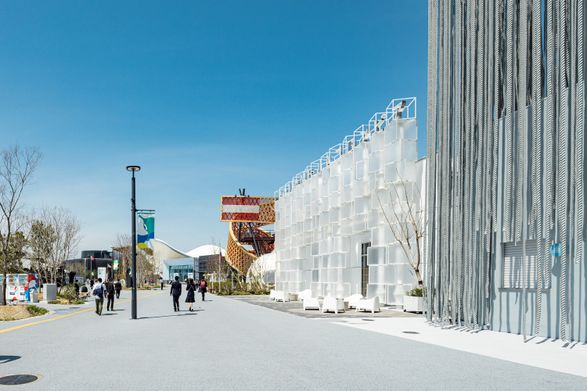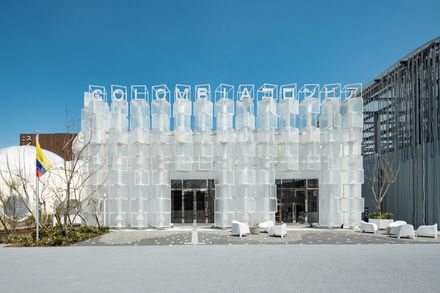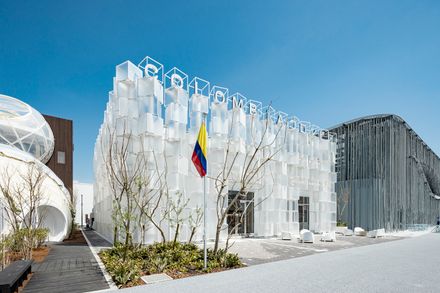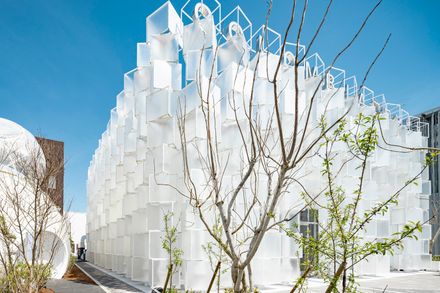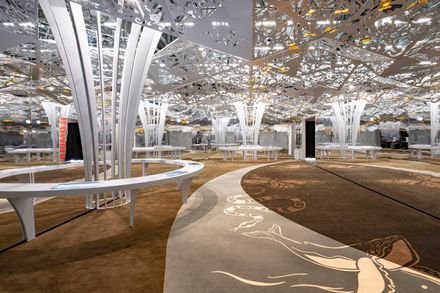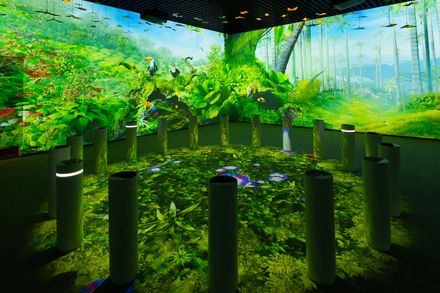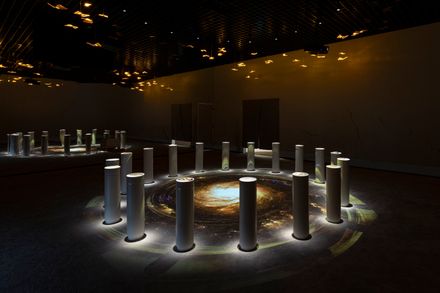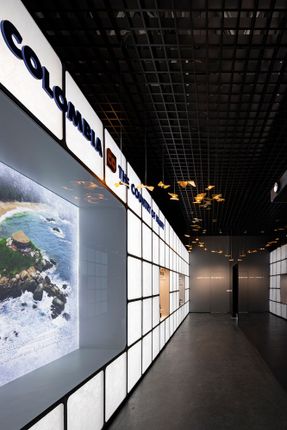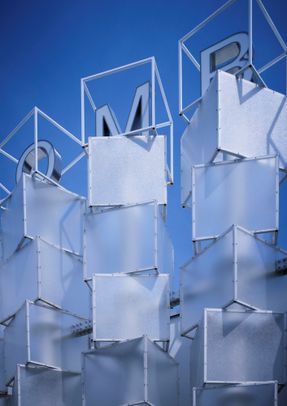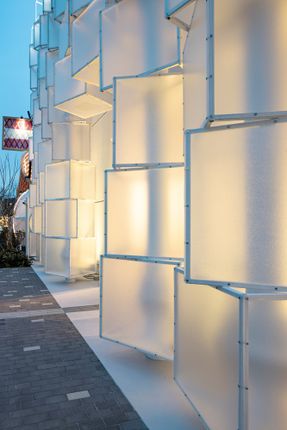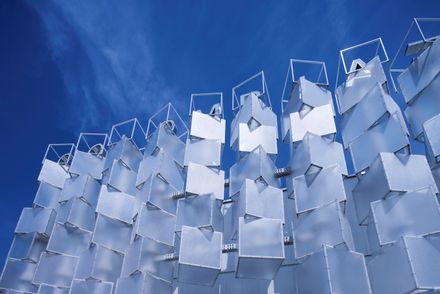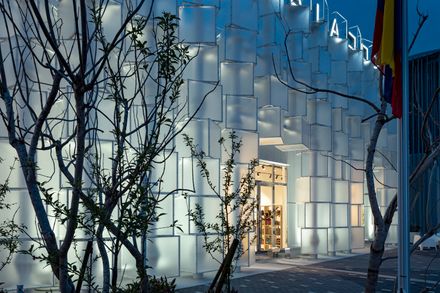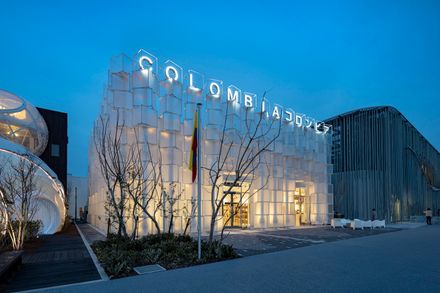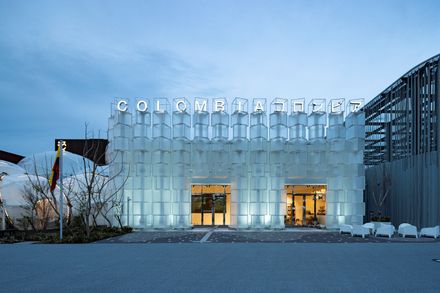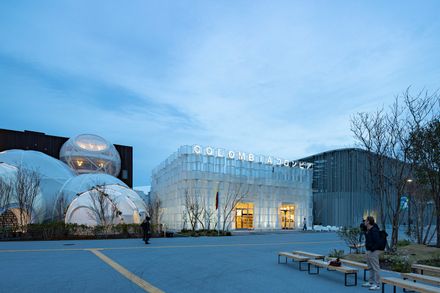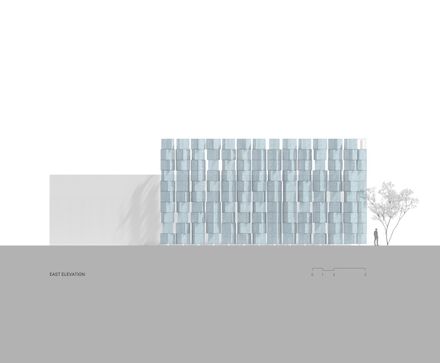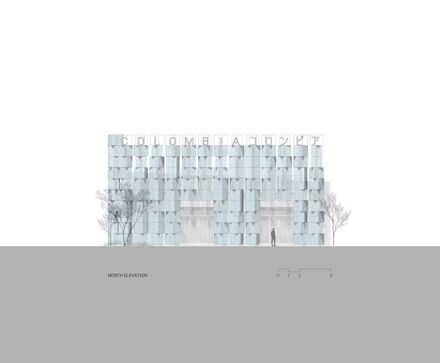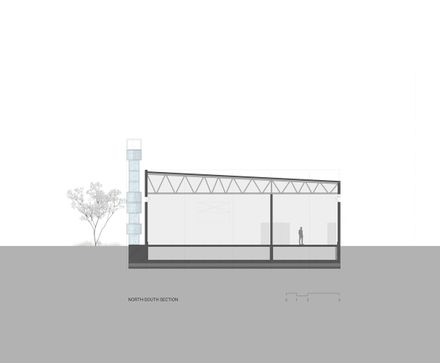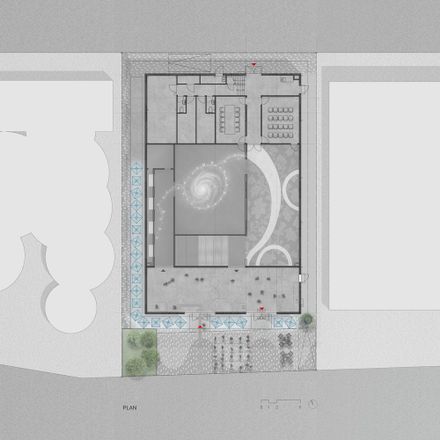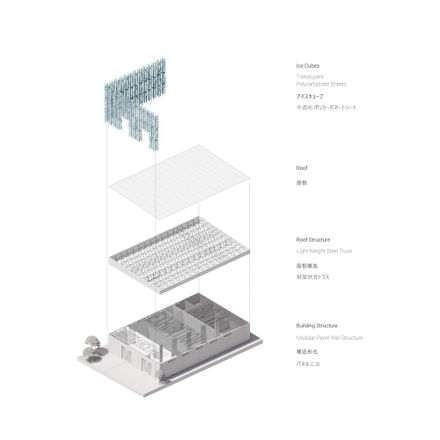Osaka Expo 2025 Colombia Pavilion
ARCHITECTS
MORF Inc.
PROJECT DIRECTOR
Karim Chahal
CHIEF ARCHITECT
Masaki Suzuki
PROJECT ARCHITECTS
Won Sungmin, Gen Kurokawa
LANDSCAPE DESIGN
1moku Landscape Design & Research
ASSOCIATE ARCHITECT
AA-Design Community
STRUCTURAL DESIGN
Ando Imagineering Group (AIG)
STRUCTURE CONTRACTOR
NS Hi-Parts Co., Ltd.
GENERAL CONTRACTOR
Sakane Sangyou Inc.
PRINCIPAL ARCHITECT
Ko Oono
MANUFACTURERS
Color Kinetics, C.I. TAKIRON, Koizumi Lighting, NICHIHA, NS Hi-Parts Co., Ltd.
PHOTOGRAPHS
Susumu Matsui, Forward stroke Inc, MORF
AREA
584 m²
YEAR
2025
LOCATION
Osaka, Japan
CATEGORY
Pavilion
"MANY YEARS LATER, as he faced the firing squad, Colonel Aureliano Buendía was to remember that distant afternoon when his father took him to discover ice." — G. García Márquez, One Hundred Years of Solitude (translated by Gregory Rabassa).
In One Hundred Years of Solitude, the Colombian Nobel Prize-winning author G. García Márquez vividly captures, through his magic realism, the moment a boy witnesses ice for the first time in the mythical town of Macondo.
Drawing inspiration from this poignant scene, the Colombian Pavilion at the Osaka-Kansai Expo embraces the concept of ICE CUBE, featuring a façade design composed of numerous translucent cubes set in various directions, to convey a sense of movement and articulation.
At first, the façade presents the visitors with an unlikely association between the country of Colombia and Ice Cubes, only for this connection to unravel as the visitors venture through the pavilion.
The façade ice cubes are constructed from semi-transparent polycarbonate panels and illuminated with lights that can be color-controlled, allowing the façade to take on different expressions throughout the day and night.
This dynamic lighting will captivate visitors' attention, serving as a platform to showcase Colombian culture during the Expo.
Inside the pavilion, visitors can savor Colombian coffee, a national specialty, at a bar counter located in the entrance hall.
Given the temporary nature of Expo pavilions, the design focused on a short construction period, low cost, and recyclable materials.
The main structure was built using a prefabricated light steel frame system, sitting on a floating foundation to mitigate the limitations of the soil conditions on site.
The simple, spacious structure of the light steel frame system allows for flexibility in accommodating various exhibitions, while part of the dug-out space for the floating foundation is efficiently utilized as a mezzanine floor for back-of-house areas.
Combining the story-driven façade design with a practical, environmentally sustainable main building, the Colombia Pavilion stands as a fitting and striking presence at the Expo—a place where different cultures converge.
At the same time, the decision to utilize a modular prefabricated light steel structure was driven not only by the need to accelerate construction but also by a vision for the pavilion's life beyond the temporary Expo event.
Its distinctive structural design ensures adaptability, enabling a seamless transition to a more permanent setting beyond the Expo grounds. Discussions are already underway to define the next chapter of its journey.
In terms of Exhibition Design, the Pavilion offers an experience of "Colombia, the Country of Beauty" through the lens of Magical Realism.
In One Hundred Years of Solitude, a landmark of Latin American literature and a Nobel Prize-winning work by Gabriel García Márquez, the Yellow Butterfly appears as a symbol that bridges reality and fantasy.
Inspired by this, the Yellow Butterfly has been chosen as the symbolic guide of the Colombia Pavilion throughout its immersive exhibition spaces.

